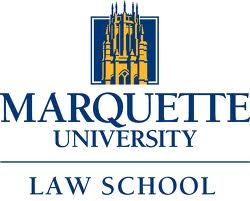Limited Terms for Justices Worth Considering, Appeals Judge Says in Hallows Lecture
Judge Albert Diaz began his E. Harold Hallows Lecture at Marquette Law School last week by saying that he was going to offer thoughts on life tenure for federal judges ”which I’m pretty confident do not reflect the views of many, if not all, of my judicial colleagues.”
But Diaz, a judge since 2010 on the U.S. Court of Appeals for the Fourth Circuit, thought the ideas he presented to be worth considering, especially at a time when concerns about the U.S. Supreme Court, including how justices are appointed, are getting so much attention.
In his Eckstein Hall lecture, Diaz outlined arguments for and against both life tenure for federal judges and election of judges. He traced the debate back to the U.S. constitutional convention in 1787 and the opposing views for and against life tenure. The former prevailed, of course.
“The act of judging is not for the faint of heart,” Diaz said. “Judging is a human endeavor” and decisions are “not always free from taint.” But it is difficult to decide what “on the front end,” i.e., in determining who will be a judge, would best minimize the chances of tainted judicial work.


